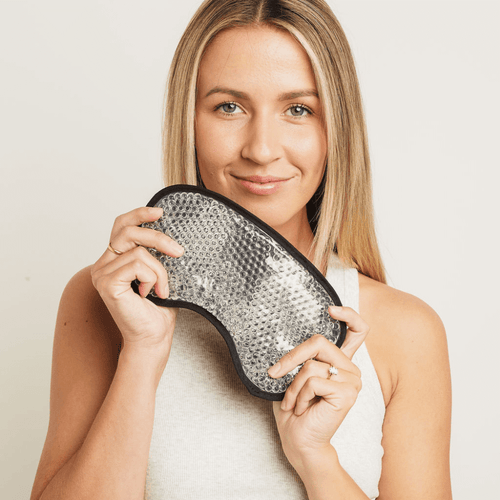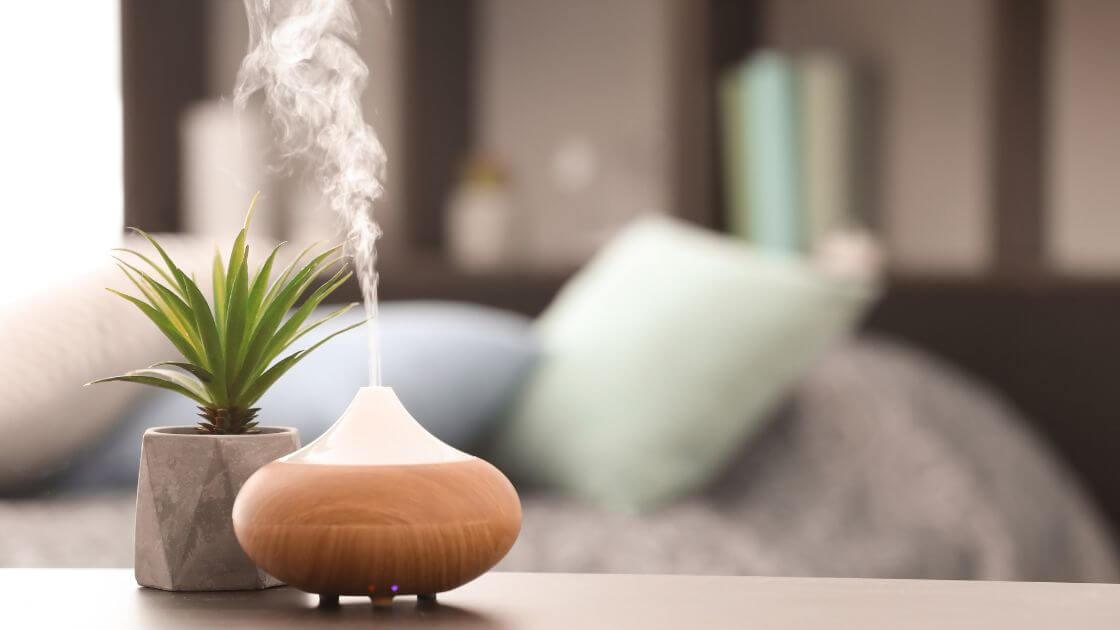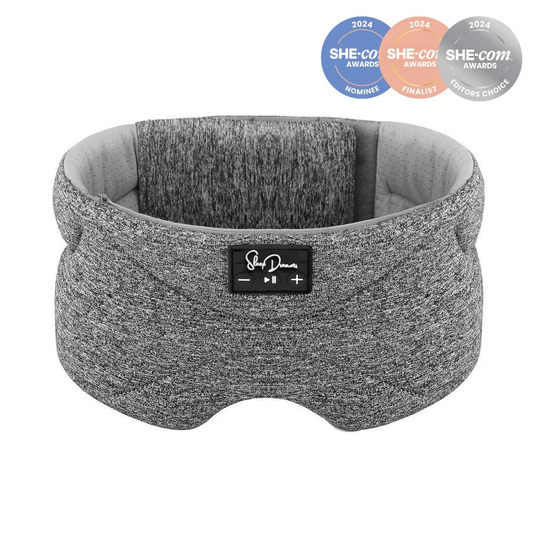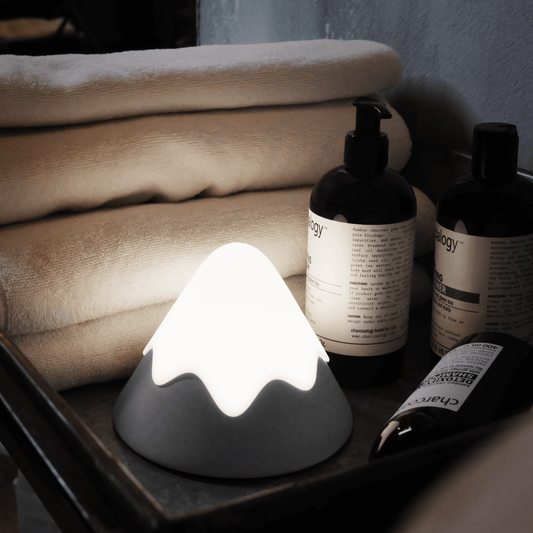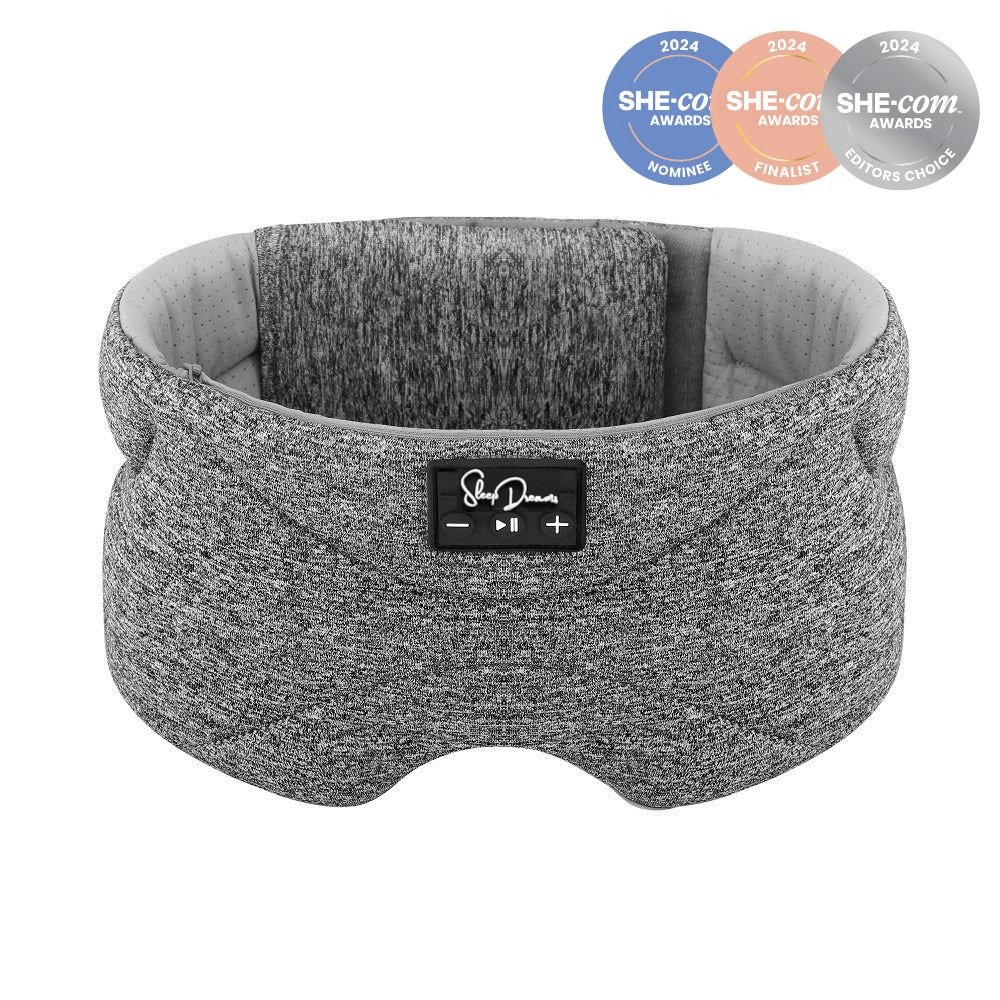Getting a good night's sleep is important for our overall health and wellbeing. But sometimes, no matter how tired we are, we just can't seem to drift off. If you're looking for a natural way to help you fall asleep, an essential oil diffuser might be the answer. What should you look out for when you're buying one?

How Do Diffusers Work?
Diffusers operate by disseminating essential oil particles into the air, which are then inhaled. This interaction with the olfactory system can modulate neurotransmitter activity, thereby promoting relaxation and stress reduction. Such a calming effect on both the mind and body is instrumental for creating an optimal sleep environment, contributing to more restorative rest cycles.
There are different types of diffusers that we wanted to share with you.
| Type of Diffuser | How It Works | Pros | Cons |
|---|---|---|---|
| Ultrasonic Diffuser | Uses ultrasonic vibrations to disperse a mist of water and essential oil into the air. | Quiet, efficient, can act as a humidifier. | Dilutes the essential oil with water. |
| Nebulizing Diffuser | Uses an air pump to disperse essential oil particles into the air without water. | Strong concentration of essential oil, no dilution. | Noisy, uses more oil, can be expensive. |
| Evaporative Diffuser | A fan blows air through a pad or filter soaked with essential oil. | Simple to use, portable. | Lighter oils disperse faster than heavier ones, so aroma is inconsistent. |
| Heat Diffuser | Heats the essential oil to promote evaporation. | Quiet, simple to use. | Heat may alter the chemical composition of the oil. |
Ultrasonic Diffusers
Ultrasonic diffusers are among the most popular. They use water and ultrasonic vibrations to create a fine mist that is released into the air. This type not only disperses essential oils but also acts as a humidifier, making it a dual-purpose choice. However, because the essential oils are diluted with water, the aroma may not be as strong as other methods but while you are sleeping this could be key.
Nebulizer Diffusers
Nebulizers work by using a small air pump to atomize the essential oil and release it into the air. This type offers a strong concentration of essential oils and doesn't dilute them with water. The downside is that they can be noisier and use more oil than other types. While you sleep some might find the smell overpowering and in actual fact these have the opposite effect.
Evaporative Diffusers
These are the simplest types of diffusers. They work by blowing air through a filter or pad soaked in essential oil. While they are simple to use and highly portable, they tend to provide an inconsistent aroma as lighter oils evaporate more quickly than heavier oils.
Heat Diffusers
Heat diffusers operate by warming the essential oil to promote evaporation. They are usually quiet and very simple to use. However, the heat can change the chemical composition of the oil, which might alter the benefits you get from it.
Which Are the Best Essential Oils for Sleep?
We have written an entire article on the best essential oils for sleep so feel free to head over there and read all the details. For a quick summary the best essential oils for inducing sleep are lavender, chamomile, ylang-ylang, and sweet marjoram.
All four of these oils have calming and relaxing properties that can help you drift off to sleep. If you're not sure which oil to choose, look for a sleep blend that includes all four of these oils – that will be sure to give you a good night's rest.
- Lavender Oil: Lavender oil is one of the most popular essential oils for sleep due to its calming properties. It has been used for centuries as a natural remedy for anxiety and insomnia.
- Chamomile Oil: Chamomile oil has long been used as a herbal tea to promote sleepiness and relaxation. Research has shown that chamomile oil can help reduce anxiety levels and promote peaceful sleep.
- Sweet Marjoram Oil: Sweet marjoram oil is another essential oil that has been traditionally used to promote sleep. It's thought to have relaxing properties that can help ease anxiety and tension headaches.
- Ylang Ylang Oil: Ylang ylang oil has a sweet, floral scent that's often used in aromatherapy products like candles and body lotions. It's thought to have calming effects on the mind and body, making it perfect for use before bedtime.
What Should I Look Out For When Buying an Oil Diffuser for Sleeping?
Material
Ceramic or Glass: These materials are less likely to degrade over time and can add an aesthetic touch to your bedroom.
Plastic: Generally more affordable, but consider the type of plastic for its durability and safety, especially if it will be running overnight.
Timer Features
Auto Shut-off: Essential for uninterrupted sleep. This feature automatically turns off the device after a set period, saving energy and ensuring safety.
Multiple Time Settings: Options for different timed cycles can be useful for shorter naps or longer periods of sleep.
Lighting Options
Multiple Colours: Some models offer a spectrum of colours which can be set to change dynamically, aiding in mood setting.
Single Colour or No Light: A minimalist option may suit you better, especially if bright or changing lights disturb your sleep.
Dispersion Mechanism
Heat-based: Some models use heat for diffusion. Ensure the model has adjustable temperature controls to customize the dispersal rate.
Ultrasonic: These diffusers use water and ultrasonic vibrations. Look for multiple mist settings for better control over the fragrance intensity.
Additional Features
Water Capacity: A larger water tank means less frequent refills. Aim for at least a 300ml capacity for overnight use.
Remote Control: Convenient for controlling the device without needing to leave your bed, especially useful if you place the diffuser out of arm's reach.
Portability: If you travel or move rooms frequently, consider a battery-operated model. Confirm you have a convenient power socket if you opt for a plug-in model.
Aesthetics and Size: Consider the diffuser's dimensions and style. Will it fit on your bedside table? Does it match your bedroom's decor?
Ease of Use and Cleaning: Opt for models that have straightforward operating instructions and an easy cleaning process. This is crucial for the device’s longevity and your own user satisfaction.
The Fascinating History of Oil Diffusers
The use of diffusers as a means of disseminating aroma into the atmosphere has a deeply rooted history that can be traced back several millennia. This ancient practice has its origins in disparate cultures, each contributing unique methodologies and philosophies to the art of aromatherapy.
The Egyptian Origins
One of the earliest documented uses of oil diffusion comes from ancient Egypt. Revered for their advances in medicine and cosmetology, the Egyptians were pioneers in extracting oils from aromatic plants. They employed a variety of diffusion methods, including the use of specially designed pots and burners, during religious ceremonies and for embalming rituals. It is believed that these early forms of diffusion were not merely for fragrance but also served medicinal and spiritual purposes.
Chinese Contributions
Meanwhile, in ancient China, the use of aromatic oils was integrated into various aspects of daily life as well as spiritual practices. Ceramic and clay lamps filled with aromatic oils were lit to produce fragrant smoke, serving both medicinal and religious needs. Interestingly, the term "huileys" was derived from these Chinese lamps and has etymological links to the modern word "oil."
From Antiquity to Modernity
As civilizations advanced, so did the techniques for oil diffusion. The Greeks, Romans, and later the Islamic Golden Age, all contributed to the refinement and spread of aromatherapy practices. Fast-forward to today, and we have a variety of technologically advanced diffusers, ranging from ultrasonic to heat-based mechanisms. Yet, they all serve the same fundamental purpose: to disperse essential oils into the air for both aromatic and therapeutic benefits.
A Unifying Human Experience
What makes the history of oil diffusers truly fascinating is how a common thread of human ingenuity and the quest for well-being have carried this practice across different epochs and cultures. It serves as a reminder that the allure of aromatic oils is not a modern fad but a timeless aspect of human civilization.
The Modern Use of Oil Diffusers
For many people today, oil diffusers are used for relaxation and stress relief. Different essential oils can have different effects on the body. For example, lavender oil is renowned for its ability to promote sleep and calm the mind, while peppermint oil can help improve concentration and mental clarity. When used in a diffuser, these oils can help create a calm and inviting environment that's perfect for winding down at the end of the day.
If you're looking for a natural way to help you sleep better, an essential oil diffuser is a great option. Just make sure to choose the right oil and diffuser for sleep. For example we suggest not using an awakening scent with a bright diffuser with no timer!



